Grace Score Cardiac
MACE = AMI, PCI, CABG, and death;.

Grace score cardiac. Applied TIMI, GRACE, and HEART Scores;. This score uses these eight parameters to calculate risk:. Events in-hospital for the GRACE risk score (RS), at 14 days for the TIMI RS, and at 30 days for the PURSUIT RS.
Simple to use, but has a poor predictive power (i.e. Design Prospective international cohort. Intermediate HEART Score (4 – 6) = 16.6% MACE Rate.
GRACE ACS Risk Model. A prior prospective, multi-center comparison in the United States found EDACS to be the superior scoring system overall. GRACE score >109 and <140;.
The AUC of GRACE, HEART, and TIMI were 0.73 (95% CI:. Does not include troponin assays as part of score and the majority of the score is dependent on patient age. Patients were classified into low (1-108), intermediate (109-140) and.
The history, electrocardiogram, age, risk factors, troponin (HEART) and global registry of acute coronary events (GRACE) scoring systems are commonly used to risk stratify patients with chest pain. GRACE Score < 140 (Endorsed by ESC Guidelines 15, better c-statistic than TIMI score) TIMI Score 0-1 (Endorsed by AHA Guidelines 14) Stress Test (if able to obtain quickly) NOTE:. How do we use the SYNTAX scores?.
The HEART score is most often used in the ED for undifferentiated chest pain as a tool to rule out ACS in low risk patients. You should know the main categories of the HEART and GRACE scores to quickly risk stratify ACS patients clinically. Which charts should I use for my country?.
Cardiac markers followed by some sort of provocative or objective cardiac testing in patients with chest pain outside clear evidence of cardiac ischemia. 3 other variables are used:. Additionally, the number of low-risk patients identified by each score were compared at a fixed level of safety of at least 95% or 98% sensitivity.
0.70-0.76%), 0.86 (95% CI:. This score uses these eight parameters to calculate risk:. Total GRACE Score (1 to 372 points).
History of myocardial infarction;. The GRACE and TIMI score were calculated based on prospectively collected data. The 'Thrombolysis In Myocardial Infarction', or TIMI Study Group is an Academic Research Organization (ARO) affiliated with Brigham and Women's Hospital and Harvard Medical School.The group has its headquarters in Boston, Massachusetts, and a satellite location in Quincy.
The CFS is a simple guided frailty tool that may enhance prediction in this setting. Cardiac arrest at admission;. The SCORE database combines results from:.
GRACE Risk Score 2.0 substitutes several variables that may be unavailable to clinicians and, thus, limit use of the GRACE Risk Score. In 11 the GRACE risk score was made available as an app, and it has since been downloaded more than 10,000 times. The GRACE Risk Score is a well-validated tool for estimating short- and long-term risk in acute coronary syndrome (ACS).
Scores 0 – 3:. The score can be calculated both at hospital admission and at discharge. The GRACE risk score stratifies mortality risk (6 mo – 3 y) from myocardial infarction (ST- elevation and non-ST elevation) in patients suffering from acute coronary syndrome.
All these scores were developed for short-term prognosis:. (1) The criterion standard used by cardiologists – the TIMI and GRACE scores – stratified patients with proven or highly suspected. GRACE score in predictin g 30-day maj or advers e cardiac ev ents (MACE).
SCORE risk charts interactive version. 1 Major non-cardiac surgery is associated with an incidence of perioperative cardiac death of 0.5–1.5%, and of major cardiovascular complications (e.g. Several scoring systems such as HEART, TIMI and GRACE scores have been used to help physicians estimate cardiac mortality risk.
GRACE comes from the Global Registry of Acute Coronary Events, an international ACS database and is calculated at hospital admission and at discharge. Systematic reviews comparing different risk scores using data from single risk score studies conducted in different sites show similar results. Low risk of MACE (major adverse cardiac events) occurring (1.7%) where discharge can be an option.
There is currently no validated risk model to predict mortality beyond 6 months. In total, 1748 patients were included. HEART score calculated at ED, GRACE and TIMI score retrospectively Primary outcomes:.
Score 7 – 10:. Global Registry of Acute Coronary Events (GRACE) score Based on a global registry of 102,341 patients, the GRACE score estimates in-hospital, 6 months, 1 year, and 3-year mortality risk after a heart attack. A GRACE score will determine whether the cardiac event is low, medium, or high risk.
The TIMI is the most historically validated for percent risk at 14 days of major adverse cardiac event. 0.78–0.) and the GRACE score with an AUC of 0.73 (95% CI:. Occurrence of major adverse cardiac events (MACE) at 6 weeks;.
0.84–0.), followed by the AUC of the TIMI score with 0.80 (95% CI:. GRACE Score 2.0 Calculator. The TIMI Study Group was founded by Eugene Braunwald, MD in 1984.
Performance of the scores was compared by calculating AUC curves. 2, the ROC curves of the GRACE score, HEART score and TIMI score to predict major adverse cardiac events within 6 weeks are shown. However, several other scoring systems exist such as GRACE, TIMI, and EDACS.
GRACE Risk Score 2.0 performed well in the original GRACE cohort. These findings merit evaluation in larger cohorts of unselected patients. Examples include studies from clinical settings as diverse.
An important subset of heart disease is perioperative myocardial infarction, which affects approximately 50,000 persons each year. Access HeartScore, the interactive tool based on the SCORE risk charts. GRACE risk score to other indications including pulmonary embolism and contrast renal nephropathy.
Heart disease is the leading cause of mortality in the United States. Like the TIMI Score, it was not designed to assess which patients’ anginal symptoms are due to ACS. For GRACE 6 month risk score:.
Highly suggestive of cardiac origins;. Started in 1995, this collection now contains 68 interlinked topic pages divided into a tree of 31 specialty books and 736 chapters. Cardiac death with symptoms suggestive of myocardial ischemia and presumed new ischemic ECG changes or new LBBB, but death occurring before blood samples could be obtained, before cardiac biomarker could rise, or in cases cardiac biomarkers were not collected.
The HEART score has become the dominant risk stratification scoring system for chest pain. Applying a sensitivity between 95% and 98%, HEART score identified 21.8% patients as being low risk compared to none with TIMI and 13.2% with GRACE. An early routine invasive approach within 24 hours of admission is recommended for NSTEMI based on hs-cTn measurements, GRACE risk score >140, and dynamic new, or presumably new, ST-segment changes, as it improves major adverse cardiac events and possibly early survival.
2 varibales are not used:. Coronary heart disease is the biggest killer in the UK, resulting in more than 80 000 deaths in 10. However “MACE” is a composite score including death, myocardial infarction, or urgent revascularization, a problematic combination of outcomes.
0.84-0.%) and 0.80 (95% CI:. Myocardial infarction, heart failure and stroke) of 2–3.5%. There are around 300 published manuscripts and more than 4,000 citations involving the GRACE risk score, and on Google there are 46 pages of citations using the term ‘GRACE risk score’.
Very complex to use and a large portion of the score is dependent on the patient age. Elevated cardiac enzymes or biomarkers (e.g. High risk of MACE (72.7%) with recommendation for immediate invasive treatment.
The Global Registry of Acute Coronary Events (GRACE) hospital discharge risk score (GRACE score) developed from a multinational registry involving all subsets of acute coronary syndrome (ACS) predicted 6-month survival. Using the GRACE risk score, eight factors independently predict risk of heart attack and/or death:. Scores 4 – 6:.
The Global Registry of Acute Coronary Events (GRACE) risk score is widely recommended for risk assessment in patients with acute coronary syndrome (ACS). 0.78-0.%), respectively (all differences. Its emergence has received widespread international media coverage.
Objective To compare the accuracy of the GRACE score, a strong prognosticator in acute coronary syndrome (ACS) that is calculated using conventional cardiac troponin (cTn) assays, with that calculated with high-sensitivity cTn (hs-cTn) and with the combination of the GRACE score with hs-cTn or B-type natriuretic peptide (BNP). The Global Registry of Acute Coronary Events (GRACE) risk score is recognised internationally as a tool for the risk stratification of non-ST elevation acute coronary syndromes,1–7 and its use in routine clinical practice is recommended by the European Society of Cardiology and the National Institute for Health and Clinical Excellence (NICE).8, 9 Because it collects patient. 2 This article provides a brief synopsis of the diagnosis and management of.
Contact us for more information. The GRACE Score is a prospectively studied scoring system to risk stratifiy patients with diagnosed ACS to estimate their in-hospital and 6-month to 3-year mortality. GRACE Score, Global Registry of Acute Coronary Events Score, ACS Risk Model, Acute Coronary Syndrome Risk Model.
Other scores include HEART and GRACE. The structure of the five elements with a 0, +1, and +2 scoring system (analogous to the Apgar score) helps to translate a long history and examination of a patient with chest pain into a comprehensible score of 0 to 10. This is a health tool that provides risk stratification of mortality from myocardial infarction in six months to 3 years time in patients with acute coronary syndrome both STEMI and non STEMI.
GRACE represents the Global Registry of Acute Coronary Events, an international observational data base studying patients with ACS. The SYNTAX score is a useful differentiator for the outcome of patients undergoing three-vessel PCI. We’ve chosen to focus on the TIMI score, which calculates risk of major adverse cardiac events, or MACE, at 14 days.
Initial ED risk scores were adopted from those created for post-ACS risk stratification such as the Thrombolysis in Myocardial Infarction (TIMI) score and the Global Registry of Acute Coronary Events (GRACE) score , among others (7,8). Elevated cardiac marker Killip class, or signs of heart failure from a physical exam If the GRACE score indicates a person is a low risk after an NSTEMI, a doctor may prescribe medication. History of congestive heart failure;.
Results of validation study (Different than original study shown above) Low HEART Score (0 -3) = 1.7% MACE Rate;. A family history of heart disease ;. Chronic hyperglycemia hemoglobinA1c (HbA1c) can independently predict major adverse cardiac events (MACEs) in patients with ACS.
The GRACE score overestimated mortality risk after myocardial infarction in these cohorts of older patients. Table 5 Sensitiv ities, speci fi cities, positive pr edictiv e values (PPV) , and negat ive predict ive values. Intermediate risk of MACE of .3% and recommendation for clinical observation and investigations.
Interpreting your TIMI risk score. The score is addressed to patients presenting to ER with chest pain. Major adverse cardiac events (MACE) within 6 weeks We assessed 2 different scenarios, with fixed safety level of 95% or 98% sensitivity J Poldervaart1, M Langedijk2, B Backus3, I Dekker4,A Six5, P Doevendans6, A Hoes 1, J Reitsma.
The Global Registry of Acute Coronary Events (GRACE) risk score has been developed for the assessment of the risk of death among patients with acute coronary syndrome. There is a GRACE risk score for the estimation of in-hospital mortality and another for mortality in the period from the time of hospital discharge up to 6 months. The lowest score you can receive is a 0, and the highest is a 7.
A SYNTAX score of >34 also identifies a subgroup with a particularly high risk of cardiac death independent of age, gender, acute coronary syndrome, ejection fraction, Euro score and degree of revascularization. The GRACE score accounts for the physical exam and is most useful in those with heart failure or shock. Patients with NSTEACS who have both of:.
The HEART score predicts 6 week risk of major adverse cardiac events (MACE) based on patient age and medical history, ECG findings, troponin levels and the presence of specific heart disease risk factors (Hypercholesterolemia, hypertension, diabetes, smoking, obesity). 12 European cohort studies;. However, these Risk stratification of suspected acute coronary syndromes (ACS) in patients presenting to the ED with chest pain (CP) remains one of the biggest challenges.
GRACE score consisting of eight variables (age, heart rate on admission, systolic blood pressure (SBP) on admission, plasma creatinine, Killip class, ST-segment deviation, elevated troponins and cardiac arrest at admission) was calculated as described ranging from 0 to 372. We sought to validate its performance in a contemporary multiracial ACS. - 60+ calculators for rapid analysis of data ranging from the simple (aortic valve area) to the complex (GRACE risk score, PE prediction) - Cardiac Catheterization review info including coronary artery anatomy, catheter basics, and images of standard views with labels - Details of + classification systems in various areas ranging from simple.
3 million person-years of observation ;. The AUC of the HEART score was highest with 0.86 (95% CI:. 7,000 fatal CV events ;.
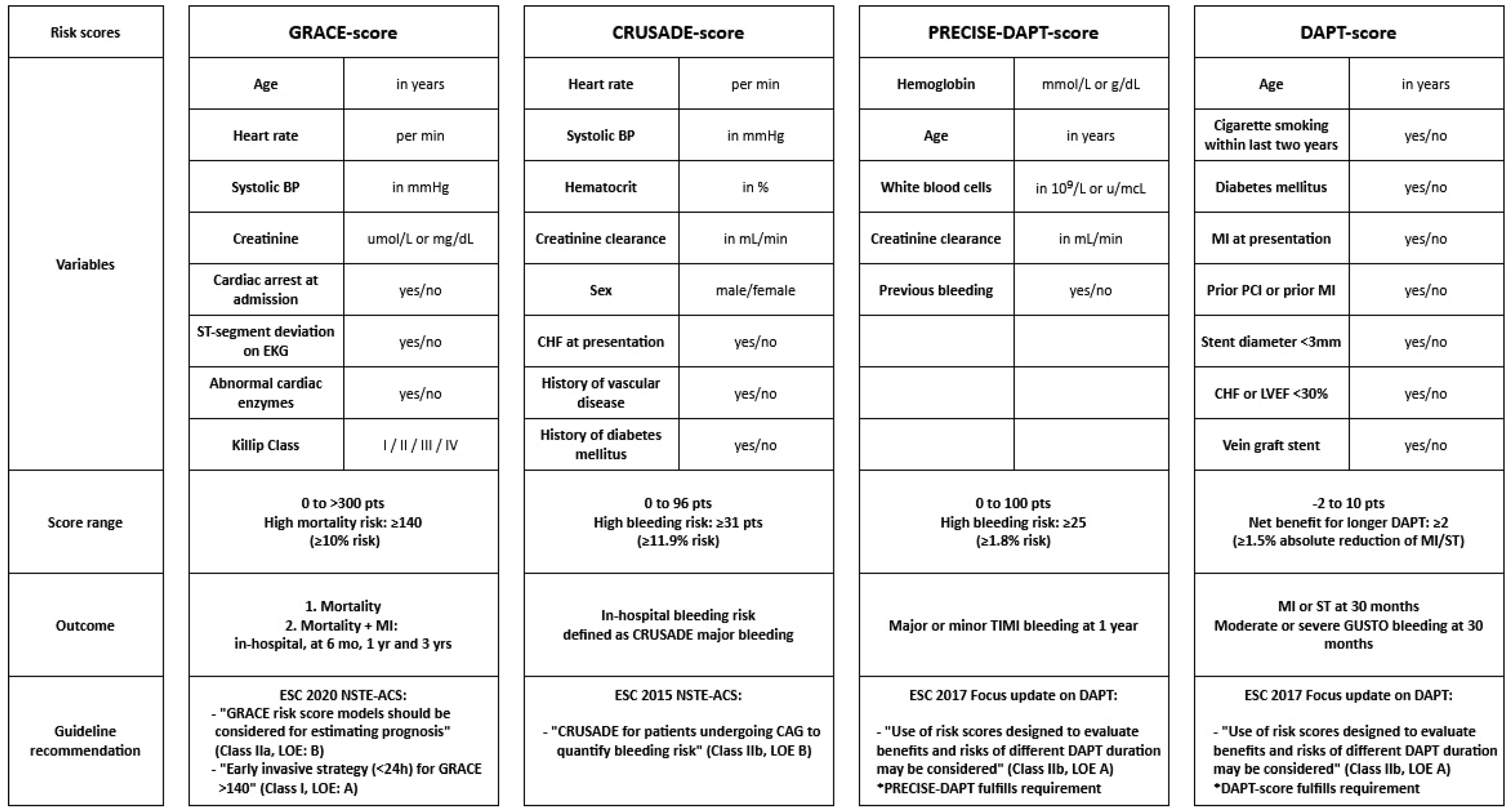
Jcm Free Full Text Risk Assessment Using Risk Scores In Patients With Acute Coronary Syndrome Html

Left Main And Or Three Vessel Disease In Patients With Non St Segment Elevation Myocardial Infarction And Low Risk Grace Score Prevalence Clinical Outcomes And Predictors Sciencedirect

Frontiers Polyscore Of Non Invasive Cardiac Risk Factors Physiology
Grace Score Cardiac のギャラリー

Admission Serum Calcium Levels Improve The Grace Risk Score Prediction Of Hospital Mortality In Patients With Acute Coronary Syndrome Yan 16 Clinical Cardiology Wiley Online Library

The Global Registry Of Acute Coronary Events Grace Score Download Table
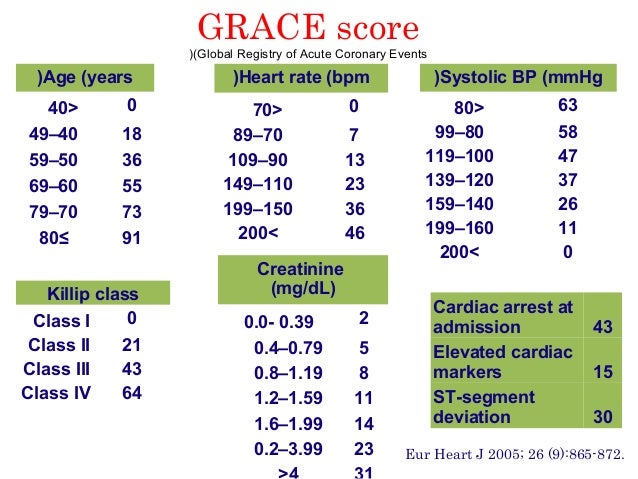
Risk Stratification Of Ua Nstemi
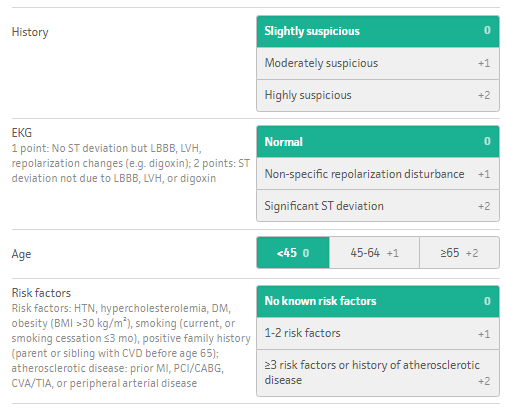
Link To And Excerpts From The Heart Score For Major Cardiac Events On Mdcalc Tom Wade Md
Www Nwcscnsenate Nhs Uk Files 9014 5642 1864 Cmscn Nstemi Acs Guideline Final 16 Pdf

Evaluation Of The Impact Of The Grace Risk Score On The Management And Outcome Of Patients Hospitalised With Non St Elevation Acute Coronary Syndrome In The Uk Protocol Of The Ukgris Cluster Randomised Registry Based

Frontiers Polyscore Of Non Invasive Cardiac Risk Factors Physiology

Full Text Clinical Decision Aids For Chest Pain In The Emergency Department Ide Oaem

Neutrophil Count Improves The Grace Risk Score Prediction Of Clinical Outcomes In Patients With St Elevation Myocardial Infarction Atherosclerosis

Acute Coronary Syndrome Optimising Management Through Risk Assessment Rcp Journals
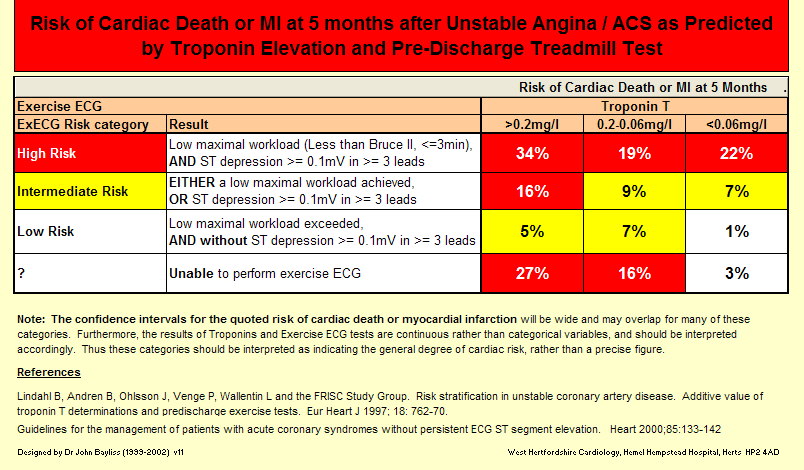
The Cardiology Library Zunis

Ccu Grace Score Ccu Stratify Grace Acs Facebook
Q Tbn 3aand9gcqe658cswtb J1qlybpepimupe6et4kjmqixdsc1n8mbdjzj3fd Usqp Cau

Heart Timi And Grace Scores For Prediction Of 30 Day Major Adverse Cardiovascular Events In The Era Of High Sensitivity Troponin
Http Www Dickyricky Com Medicine Papers 18 04 05 emj risk stratifying chest pain patients in the emergency department using heart grace and timi Pdf
Academic Oup Com Eurheartj Article Pdf 39 Suppl 1 Ehy565 P1733 Ehy565 P1733 Pdf

Grace Risk Score And Outcomes Low Intermediate And High Categories Download Table
Eurheartj Oxfordjournals Org Content Early 05 03 11 Eurheartj Ehi187 Full Pdf

The Impact Of An Acute Chest Pain Pathway On The Investigation And Management Of Cardiac Chest Pain Rcp Journals

Timi Score And Grace Score Abbreviations Acs Acute Coronary Download Scientific Diagram

Grace Risk Score For Acs On The App Store

The Global Registry Of Acute Coronary Events 1999 To 09 Grace Heart

Components Of The Timi Ua Nstemi Grace Non Ste Acs And Heart Scores Download Table
Q Tbn 3aand9gcskjkg817zmnceno5yufrdxmvd5e756gibv 39kl4bgnmfk 67g Usqp Cau

Acute Coronary Syndrome Current Treatment American Family Physician

Educate Acute Coronary Syndrome

Heart Score For Predicting Adverse Outcomes In Patients With Chest Pain Letters To The Editor American Family Physician
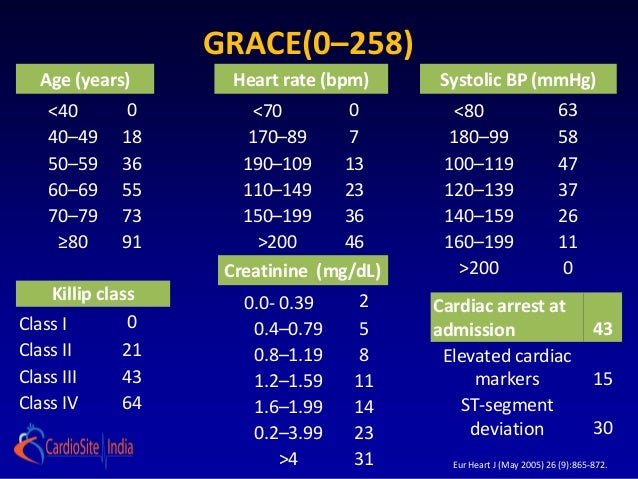
Risk Stratification In Ua And Nstemi Why And How

Know The Best Immediate Treatment For European Society Of Cardiology Facebook

Acs Mechanisms Of Acs Nejm 13 Atypical Presentations Of Acs Diaphoresis Unexplained Fatigue N And V Upper Abdominal Discomfort Exertional Symptoms Ua Nstemi Typical Chest Pain See Chest Pain For Details Pretest Probability Of Cad Or

Jpma Journal Of Pakistan Medical Association
Grace Score Among Six Risk Scoring Systems Cadillac Pami Timi Dynamic Timi Zwolle Demonstrated The Best Predictive Value For Prediction Of Long Term Mortality In Patients With St Elevation Myocardial Infarction

Predictive Performance Of Has Bled Risk Score For Long Term Survival In Patients With Non St Elevated Myocardial Infarction Without Atrial Fibrillation Journal Of Cardiology
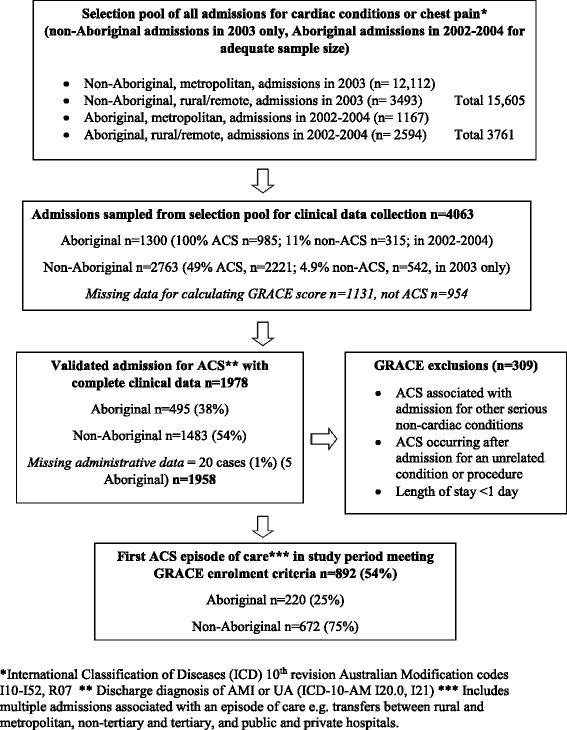
Validation Study Of Grace Risk Scores In Indigenous And Non Indigenous Patients Hospitalized With Acute Coronary Syndrome Bmc Cardiovascular Disorders Full Text

Jpma Journal Of Pakistan Medical Association
Plos One Grace Score Among Six Risk Scoring Systems Cadillac Pami Timi Dynamic Timi Zwolle Demonstrated The Best Predictive Value For Prediction Of Long Term Mortality In Patients With St Elevation Myocardial Infarction

Prediction Of Risk Of Death And Myocardial Infarction In The Six Months After Presentation With Acute Coronary Syndrome Prospective Multinational Observational Study Grace The Bmj

View Image
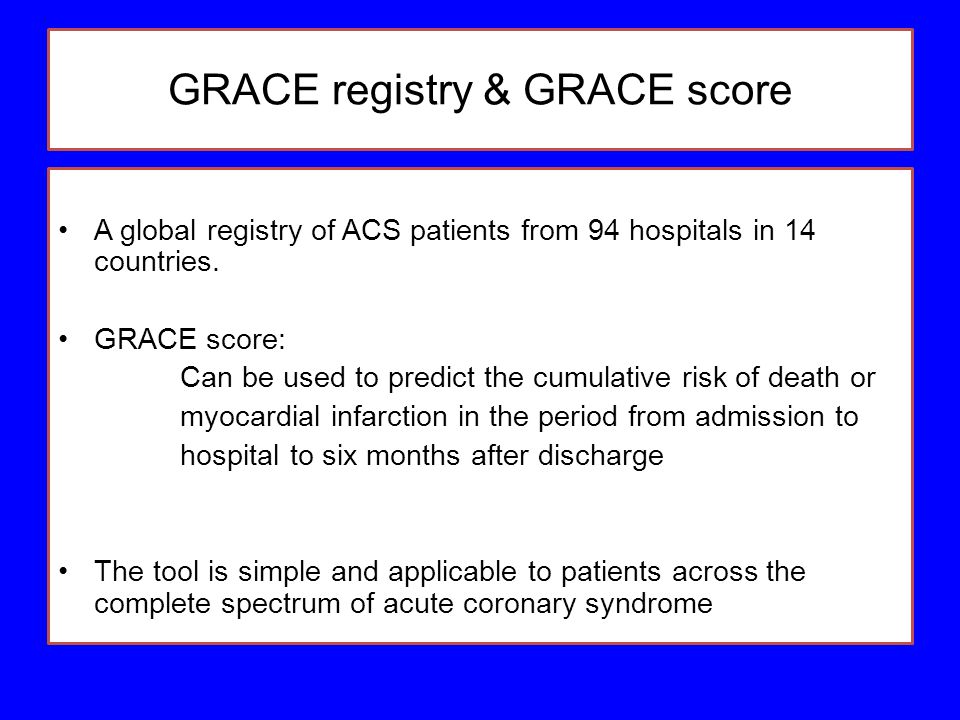
Risk Stratification And Medical Management Of Nste Acs Ua Nstemi Ppt Video Online Download
Q Tbn 3aand9gcstw5 154ytundhg1wfgp7kqyokunovroyrnxgtesgtc M5qo77 Usqp Cau
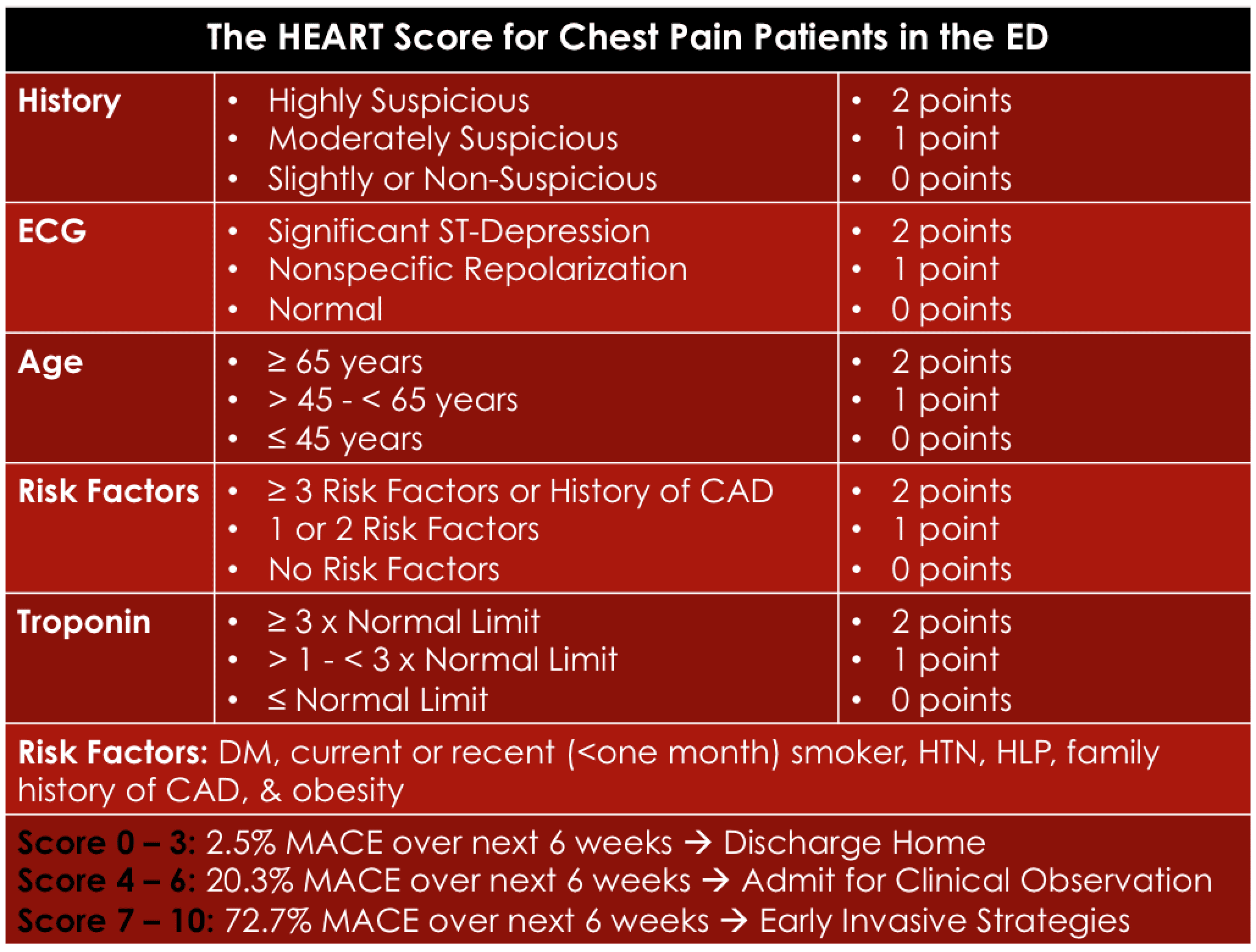
The Heart Score A New Ed Chest Pain Risk Stratification Score Rebel Em Emergency Medicine Blog

Psychological Coping And Recurrent Major Adverse Cardiac Events Following Acute Coronary Syndrome
Www Acc Org Media Non Clinical Files Pdfs Excel Ms Word Etc Meetings 18 Course Pdfs Middle East Friday 1600 Acc10shaibi Pdf La En Hash 5fcf7e57babc2234facc4f8cbf232f122ab
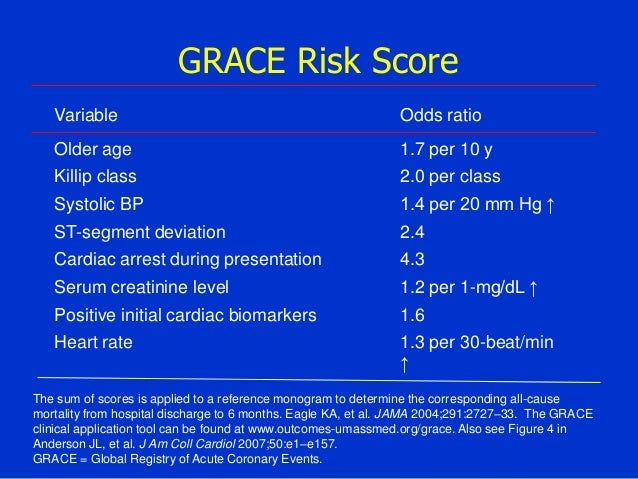
Acute Coronary Syndrome Nstemi

Risk Scores Timi Score 28 Chest Pain Section Grace Score 29 And Download Table
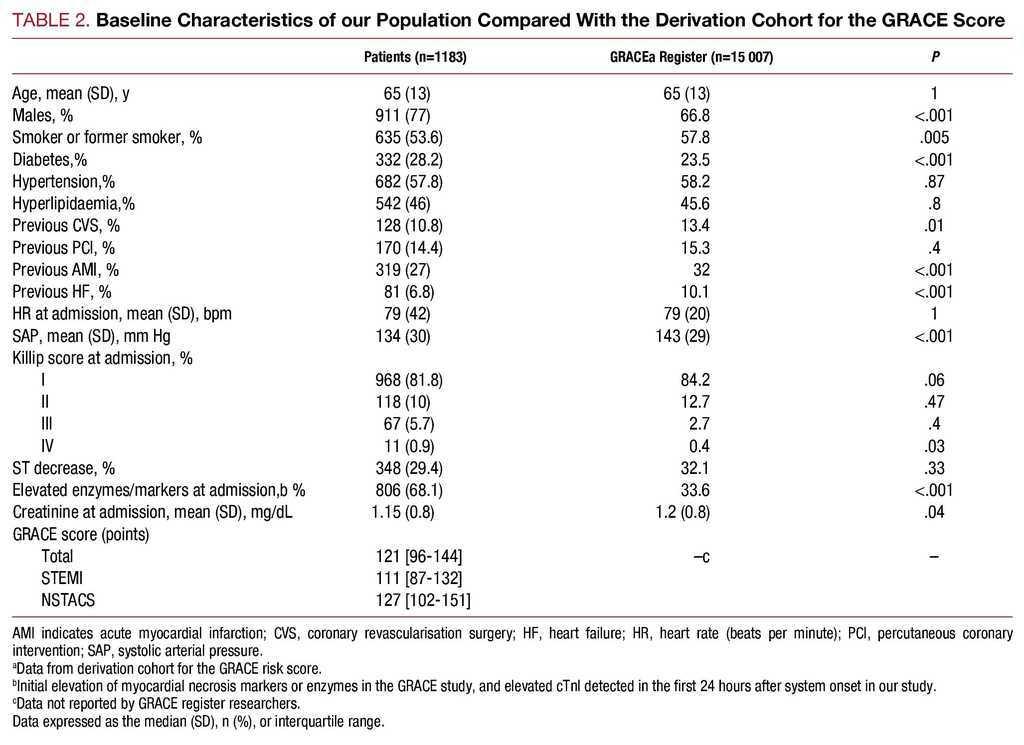
Validation Of The Grace Risk Score For Predicting Death Within 6 Months Of Follow Up In A Contemporary Cohort Of Patients With Acute Coronary Syndrome Revista Espanola De Cardiologia English Edition
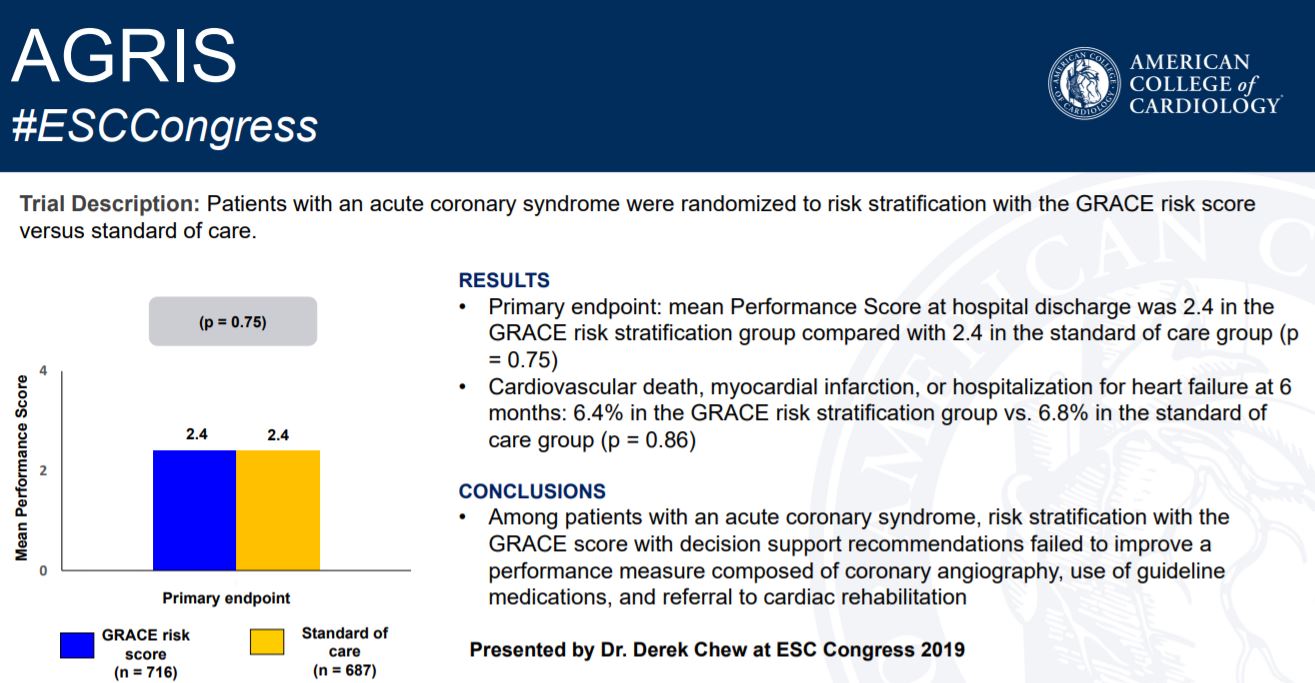
American College Of Cardiology Icymi The Agris Trial Failed To Show That Risk Stratification Grace Score With Decision Support Recommendations Was Superior To Standard Of Care T Co Yqnidzsi7d Esccongress T Co Wckql40arz
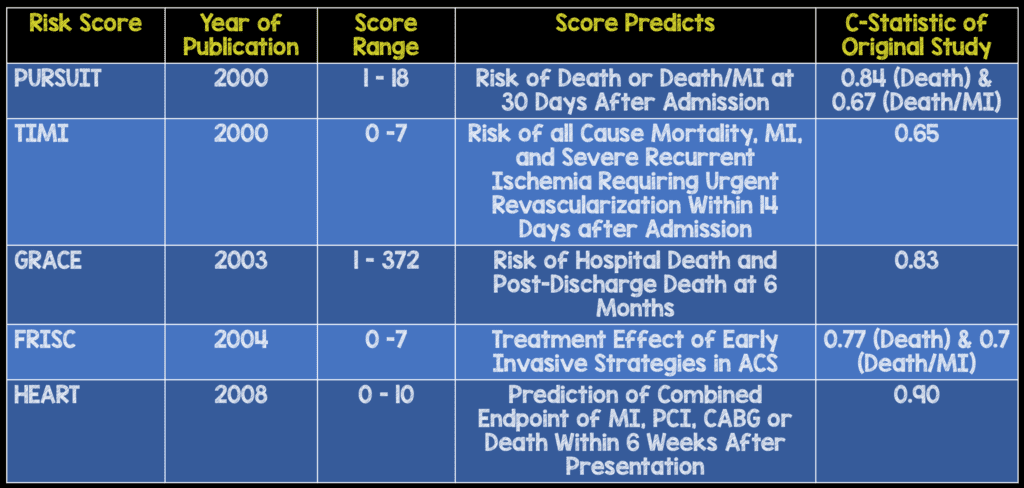
The Heart Score A New Ed Chest Pain Risk Stratification Score Rebel Em Emergency Medicine Blog
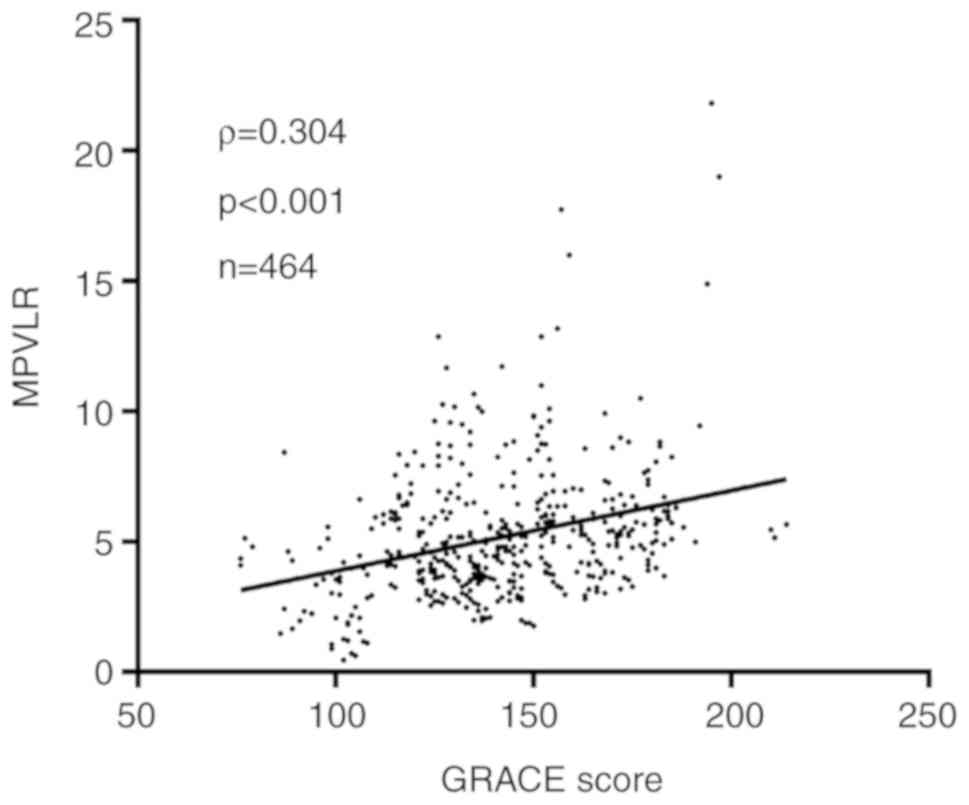
Prognostic Value Of The Combination Of Grace Risk Score And Mean Platelet Volume To Lymphocyte Count Ratio In Patients With St Segment Elevation Myocardial Infarction After Percutaneous Coronary Intervention

Risk Coronary Artery Disease Radcliffe Cardiology
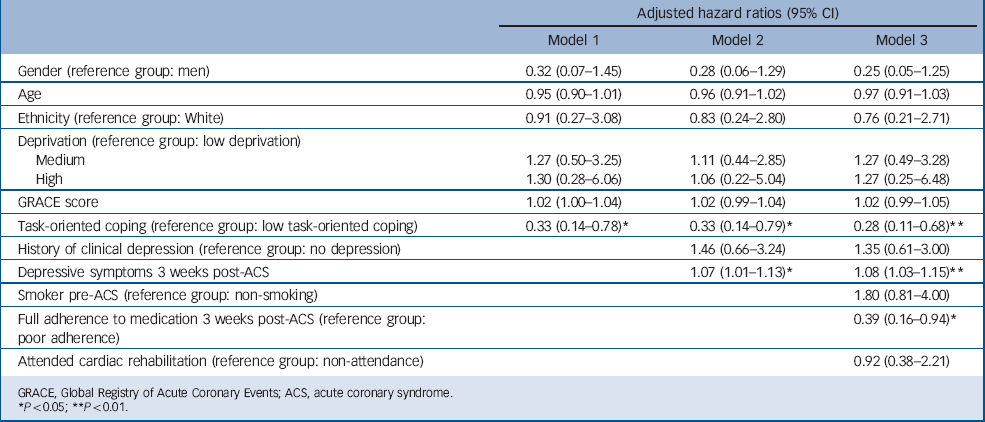
Psychological Coping And Recurrent Major Adverse Cardiac Events Following Acute Coronary Syndrome

Acs Im Reference

Comparison Of Acute Versus Subacute Coronary Angiography In Patients With Non St Elevation Myocardial Infarction From The Nonstemi Trial American Journal Of Cardiology

View Image

Acs Mechanisms Of Acs Nejm 13 Atypical Presentations Of Acs Diaphoresis Unexplained Fatigue N And V Upper Abdominal Discomfort Exertional Symptoms Ua Nstemi Typical Chest Pain See Chest Pain For Details Pretest Probability Of Cad Or
Comparison Of The Timi Grace Pami And Cadillac Risk Scores For Prediction Of Long Term Cardiovascular Outcomes In Taiwanese Diabetic Patients With St Segment Elevation Myocardial Infarction From The Registry Of The Taiwan Society
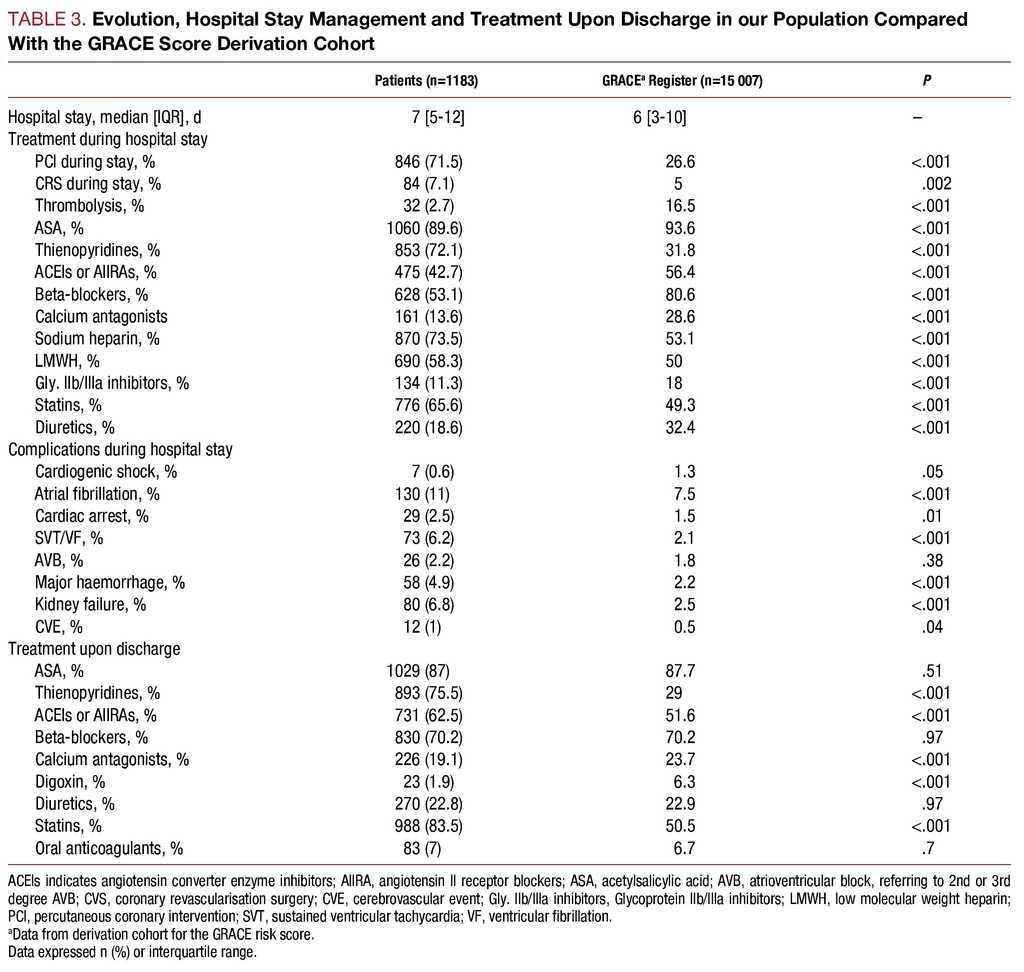
Validation Of The Grace Risk Score For Predicting Death Within 6 Months Of Follow Up In A Contemporary Cohort Of Patients With Acute Coronary Syndrome Revista Espanola De Cardiologia English Edition

The Grace Score S Performance In Predicting In Hospital And 1 Year Outcome In The Era Of High Sensitivity Cardiac Troponin Assays And B Type Natriuretic Peptide Heart
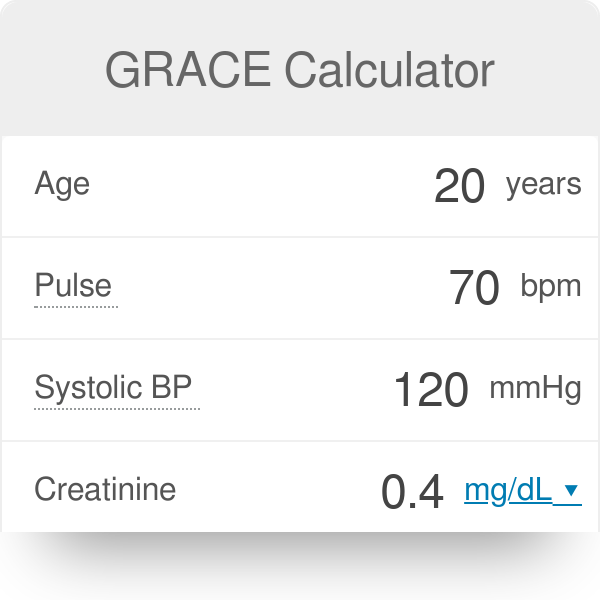
Grace Calculator Acs Score
Www Escardio Org Static File Escardio Education Live Events Courses Education Resource 003 1300 Bassand Wbz Mon S01a Pdf
Www Escardio Org Static File Escardio Education Live Events Courses Education Resource 003 1300 Bassand Wbz Mon S01a Pdf
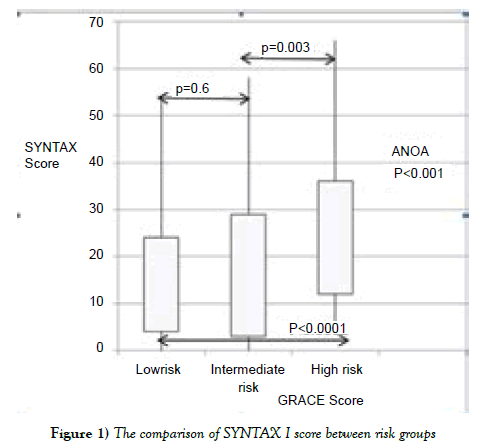
Grace Score Also Predicts Anatomic Complexity Of Coronary Artery Disease Patients Presenting With Non Stemi

Prognostic Value Of The Combination Of Grace Risk Score And Mean Platelet Volume To Lymphocyte Count Ratio In Patients With St Segment Elevation Myocardial Infarction After Percutaneous Coronary Intervention
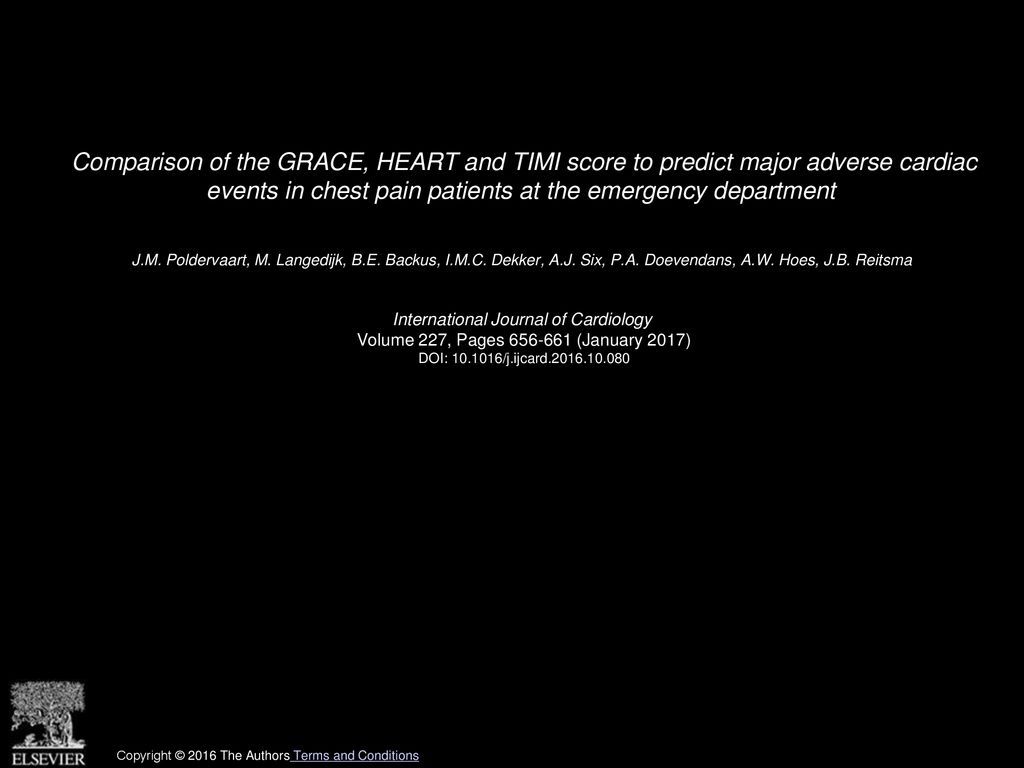
Comparison Of The Grace Heart And Timi Score To Predict Major Adverse Cardiac Events In Chest Pain Patients At The Emergency Department J M Poldervaart Ppt Download
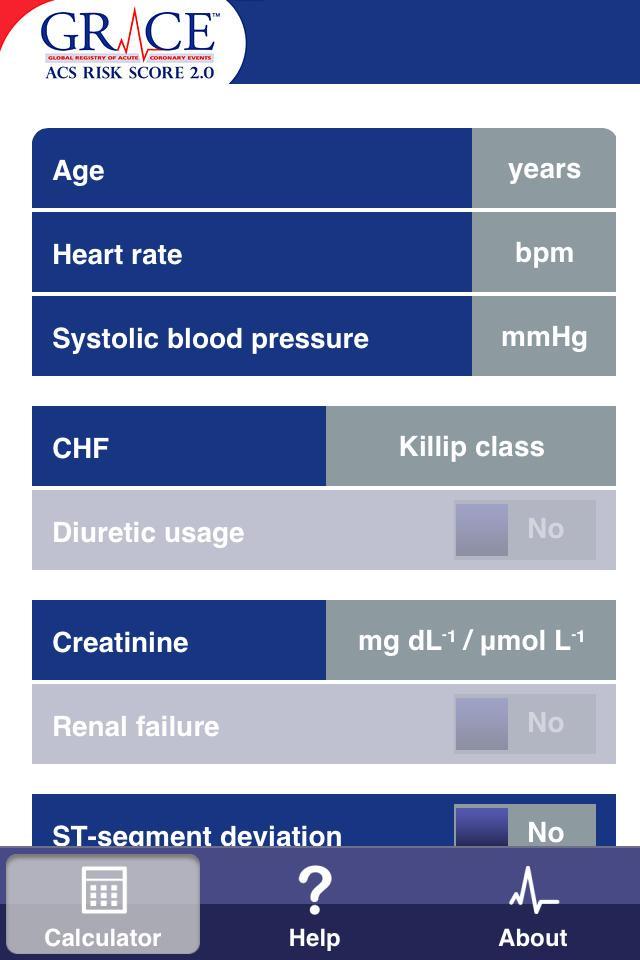
Grace 2 0 Acs Risk Calculator For Android Apk Download

Nstemi The Latest Evidence In Emergency Department Management

Acute Coronary Syndromes Rcemlearning

Jpma Journal Of Pakistan Medical Association

Contemporary Revascularization Dilemmas In Older Adults Journal Of The American Heart Association

Prognostic Value Of Timi Score Versus Grace Score In St Segment Elevation Myocardial Infarction

In Hospital Mortality Analysis Of Japanese Patients With Acute Coronary Syndrome Using The Tokyo Ccu Network Database Applicability Of The Grace Risk Score Sciencedirect
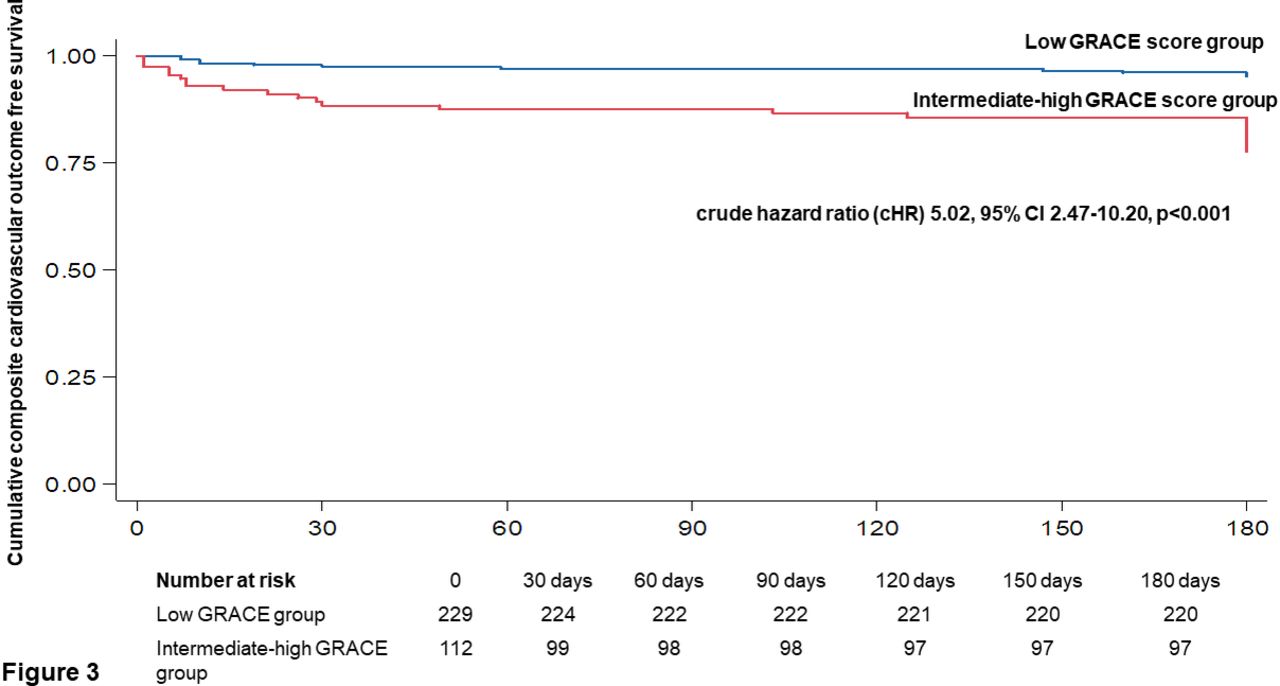
Grace Score And Cardiovascular Outcomes Prediction Among The Delayed Coronary Intervention After Post Fibrinolytic Stemi Patients In A Limited Pci Capable Hospital Open Heart

Validation Of The Grace Risk Score For Predicting Death Within 6 Months Of Follow Up In A Contemporary Cohort Of Patients With Acute Coronary Syndrome Revista Espanola De Cardiologia English Edition
Www Internationaljournalofcardiology Com Article S0167 5273 16 332 X Pdf
Www Acc Org Media Non Clinical Files Pdfs Excel Ms Word Etc Meetings 18 Course Pdfs Middle East Friday 1600 Acc10shaibi Pdf La En Hash 5fcf7e57babc2234facc4f8cbf232f122ab

Table 2 From Performance Of The Grace Risk Score 2 0 Simplified Algorithm For Predicting 1 Year Death After Hospitalization For An Acute Coronary Syndrome In A Contemporary Multiracial Cohort Semantic Scholar

Emdocs Net Emergency Medicine Educationthe Clinical Decision Rules Series Part 3 Clinical Pathway Use Emdocs Net Emergency Medicine Education

Nstemi The Latest Evidence In Emergency Department Management

Risk Coronary Artery Disease Radcliffe Cardiology
Grace Score Among Six Risk Scoring Systems Cadillac Pami Timi Dynamic Timi Zwolle Demonstrated The Best Predictive Value For Prediction Of Long Term Mortality In Patients With St Elevation Myocardial Infarction

Prediction Of Risk Of Death And Myocardial Infarction In The Six Months After Presentation With Acute Coronary Syndrome Prospective Multinational Observational Study Grace Abstract Europe Pmc

Pdf Comparing Heart Timi And Grace Scores For Prediction Of 30 Day Major Adverse Cardiac Events In High Acuity Chest Pain Patients In The Emergency Department

The Challenge Of Optimal Evaluation Of Low And Intermediate Pretest Probability Stable Chest Pain Insights From Recent Randomized Clinical Trials Upadhyayula S Kasliwal Rr J Clin Prev Cardiol

Grace Score In Patients With Coad Phoenix Cardiology

Comparison Of The Grace Heart And Timi Score To Predict Major Adverse Cardiac Events In Chest Pain Patients At The Emergency Department Sciencedirect

Details Of The Grace Risk Score For Calculating 30 Day And 6 Month Download Table
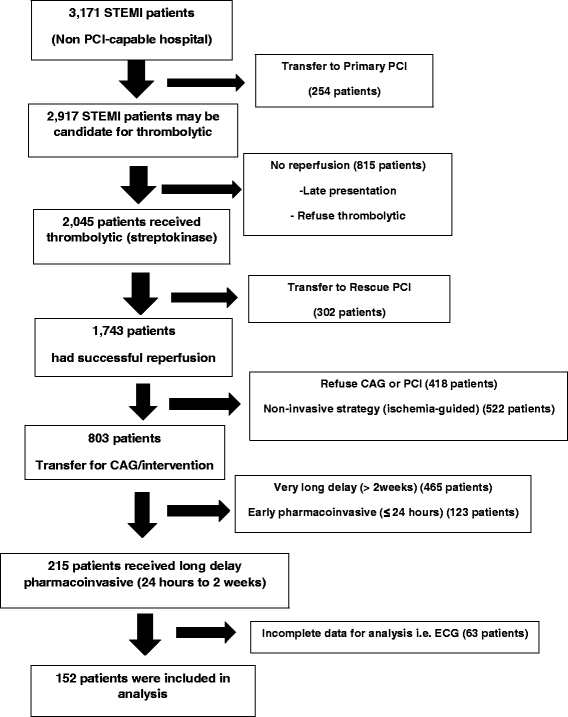
The Prognostic Utility Of Grace Risk Score In Predictive Cardiovascular Event Rate In Stemi Patients With Successful Fibrinolysis And Delay Intervention In Non Pci Capable Hospital A Retrospective Cohort Study Bmc Cardiovascular

Figure 3 Walking Beyond The Grace Global Registry Of Acute Coronary Events Model In The Death Risk Stratification During Hospitalization In Patients With Acute Coronary Syndrome Jacc Cardiovascular Interventions

Table 2 From Does Simplicity Compromise Accuracy In Acs Risk Prediction A Retrospective Analysis Of The Timi And Grace Risk Scores Semantic Scholar
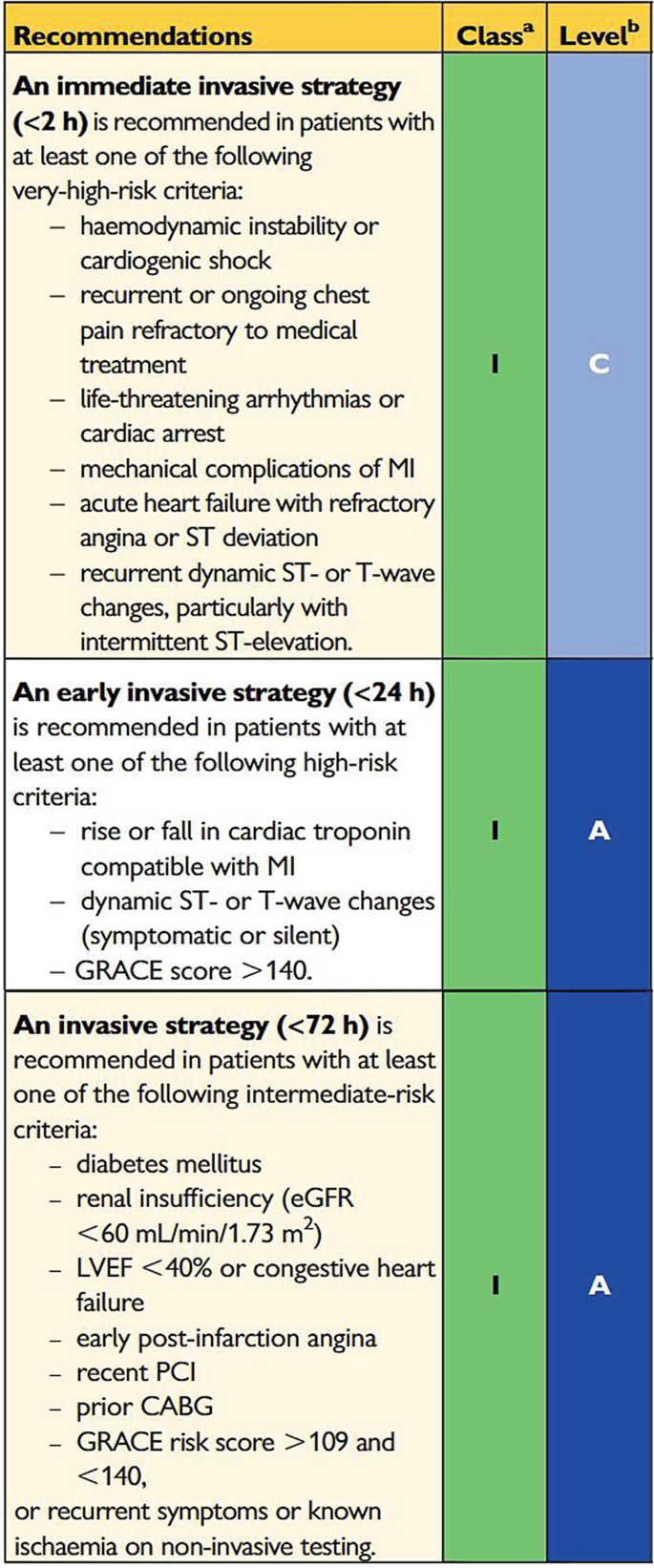
Indications For An Early Invasive Strategy In Nste Acs Patients Springerlink

Table 2 From Incremental Prognostic Value Of Biomarkers Beyond The Grace Global Registry Of Acute Coronary Events Score And High Sensitivity Cardiac Troponin T In Non St Elevation Acute Coronary Syndrome Semantic Scholar

Table 1 From Does Simplicity Compromise Accuracy In Acs Risk Prediction A Retrospective Analysis Of The Timi And Grace Risk Scores Semantic Scholar

State Of The Art Evaluation Of Emergency Department Patients Presenting With Potential Acute Coronary Syndromes Circulation

Emdocs Net Emergency Medicine Educationcurrent Ed Management Of Non St Segment Elevation Mi Nstemi A Practice Update Emdocs Net Emergency Medicine Education
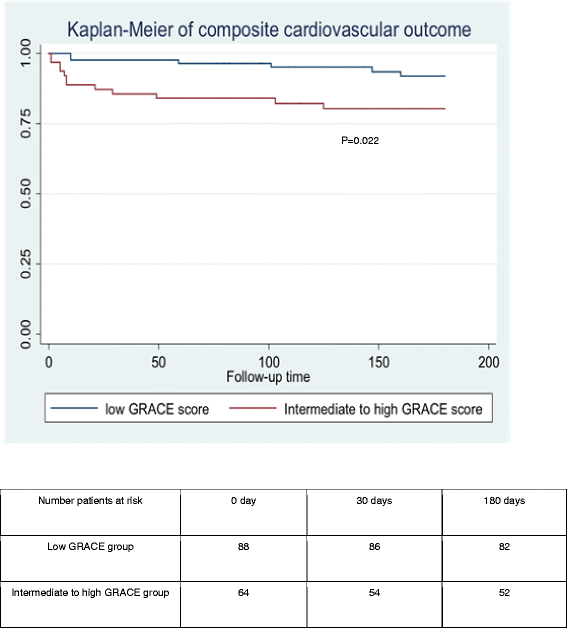
The Prognostic Utility Of Grace Risk Score In Predictive Cardiovascular Event Rate In Stemi Patients With Successful Fibrinolysis And Delay Intervention In Non Pci Capable Hospital A Retrospective Cohort Study Bmc Cardiovascular

Table 3 From Does Simplicity Compromise Accuracy In Acs Risk Prediction A Retrospective Analysis Of The Timi And Grace Risk Scores Semantic Scholar
Www Escardio Org Static File Escardio Education Live Events Courses Education Resource 003 1300 Bassand Wbz Mon S01a Pdf

Grace Risk Score And Outcomes Low Intermediate And High Categories Download Table
Q Tbn 3aand9gcqpbcmrdyktiv 8feg1qduly7vbjqpnhsevbt 6z Pz3a Wyqvt Usqp Cau
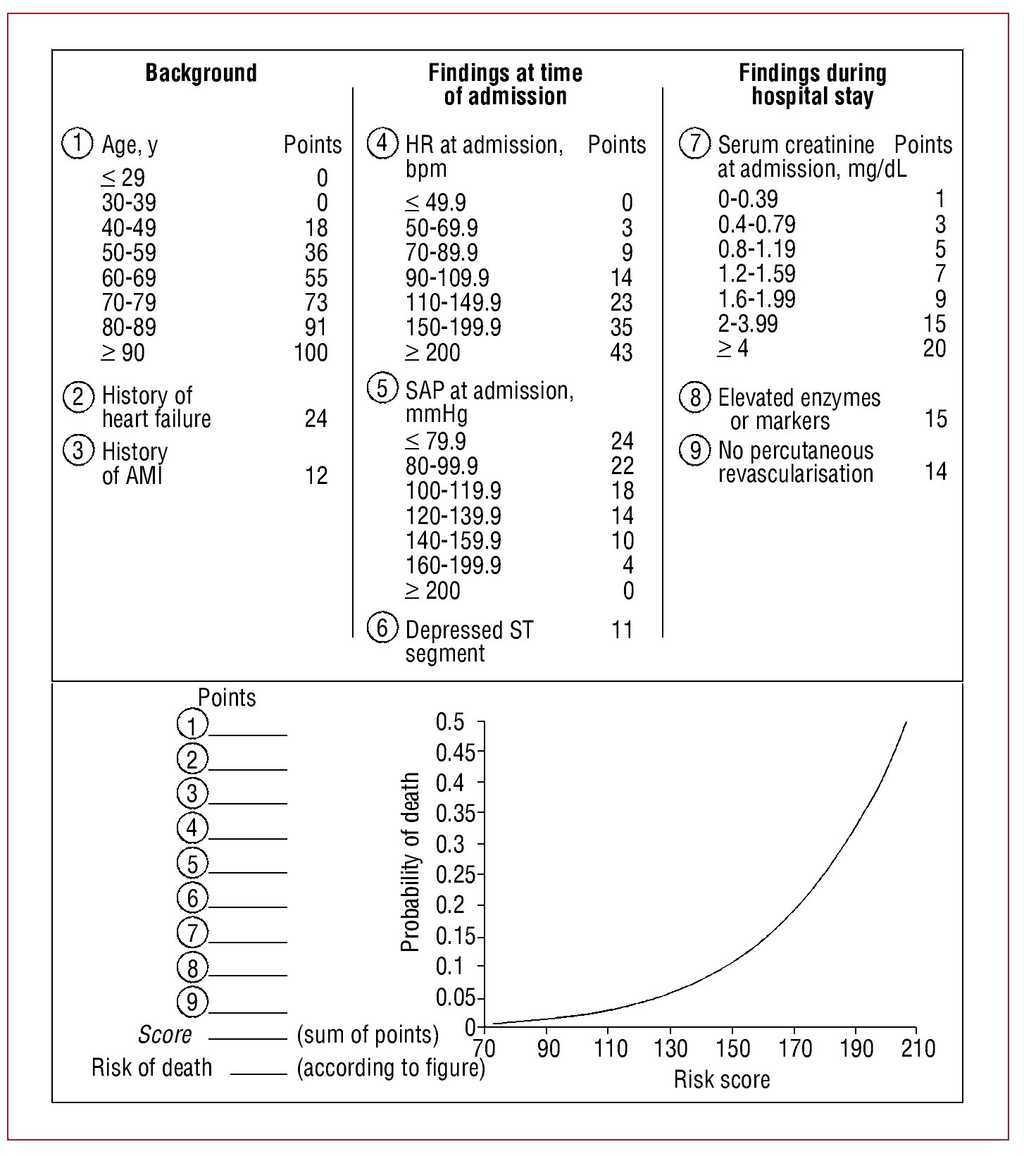
Validation Of The Grace Risk Score For Predicting Death Within 6 Months Of Follow Up In A Contemporary Cohort Of Patients With Acute Coronary Syndrome Revista Espanola De Cardiologia English Edition

High Risk Non St Elevation Acute Coronary Syndromes Nsteacs For Paramedics Journal Of Paramedic Practice



